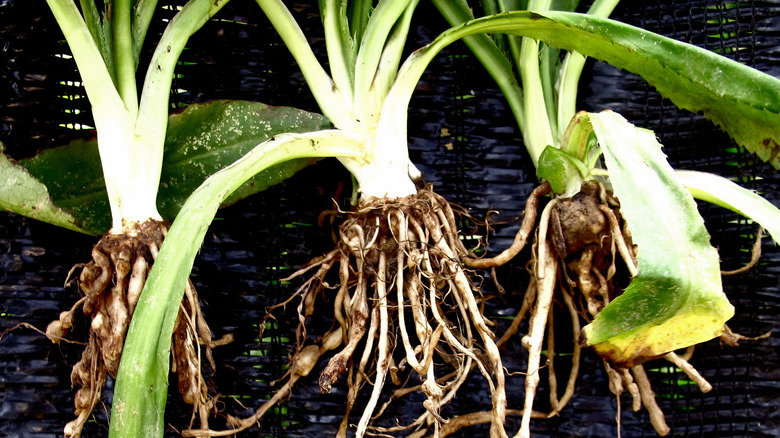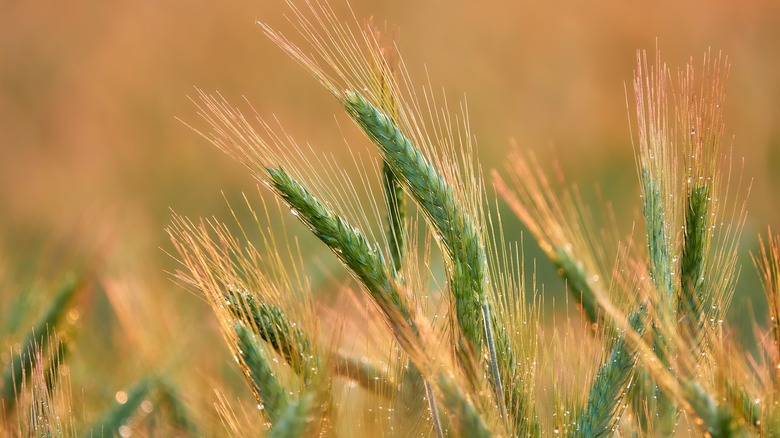Nematodes Stand No Chance Against This Fast-Growing Grass
There are over a million species of nematodes, making them the most abundant animal living on the planet. These worms, some of them 1/100th of an inch in length, are soil dwellers but also live on the highest mountain tops and under the sea. In agriculture, many of them perform a helpful nutrient cycling function. But there are exceptions; a few pathogenic outliers like to cause trouble. Generally, nematode species feed off plants and sometimes other animals, but the plant-killing beasts we're concerned about are called root-knot nematodes. And, the cover crop that eliminates the nematode problem — fast-growing cereal rye.
Cereal rye (distinct from annual rye) is your go-to crop if root-knot nematodes are feasting on and infecting your plants' root systems. An additional benefit of planting cereal rye in the fall is that it will enrich your soil in time for spring garden planting. There is also a clever sugar hack that can keep garden worms away from your plants, which is an easy first step before you overhaul your garden with a cover crop.
More about cereal rye and nematodes
Cereal rye is used as a cover crop in commercial agriculture, but it's just as useful at functioning the same way, including preventing soil erosion, in your personal garden. The purpose of a cover crop is to provide a type of 'green manure' and help maintain a nutritional balance in your soil. We strongly recommend it.
Root-knot nematodes literally go after the root systems of plants as a food source, killing or deforming them in the process. The great advantage of planting cereal rye, even in your little ole patch of garden, is that any root-knot nematodes will make a beeline for the rye's root system, get trapped inside, and expire. Problem solved. Meanwhile, the rye is doing its job of scavenging for the nitrogen that's so vital for plants' chlorophyll production. It also keeps the soil intact and in place throughout the winter months. As you're weighing the incredible benefits of planting cereal rye in your garden, consider also adding ornamental grasses to your landscape.

